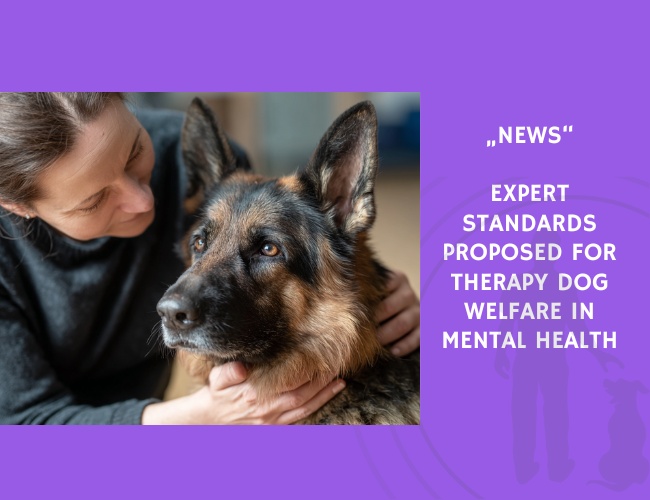Chiang Mai, Thailand, 19.07.2025
Global experts have reached consensus on minimum standards to ensure health, safety, and animal welfare in adolescent canine-assisted psychotherapy programs.
Canine-assisted psychotherapy (CAP) is gaining momentum in adolescent mental health, but clear, evidence-based guidelines have been lacking. A 2024 study by Jones et al., published in Animals, used the Delphi method to gather global expert consensus on what standards are essential for these interventions.
A panel of 40 international experts evaluated 49 potential standards over two rounds and agreed that 32 items were either important or essential. These included comprehensive risk assessments, veterinary screening, preventative healthcare for dogs, and mandatory training for providers in infection control and first aid.
To support canine welfare, experts emphasized the need for providers to be trained in assessing, documenting, and responding to signs of stress or fatigue in therapy dogs. The panel favored flexible, individualized welfare assessments over rigid protocols like strict one-hour limits or fixed schedules.
Interestingly, commonly implemented but controversial practices—such as fecal parasite testing and prohibiting raw food diets—were not included in the final minimum standards. The panel prioritized evidence-based practices and flexibility to adapt to the dog’s needs, rather than overly strict, one-size-fits-all rules.
This study provides the first formal consensus on CAP minimum standards, offering practical guidance for ensuring safety and welfare in therapy dog interventions, especially within clinical and youth mental health settings.
Guidance on Minimum Standards for Canine-Assisted Psychotherapy in Adolescent Mental Health: Delphi Expert Consensus on Health, Safety, and Canine Welfare










